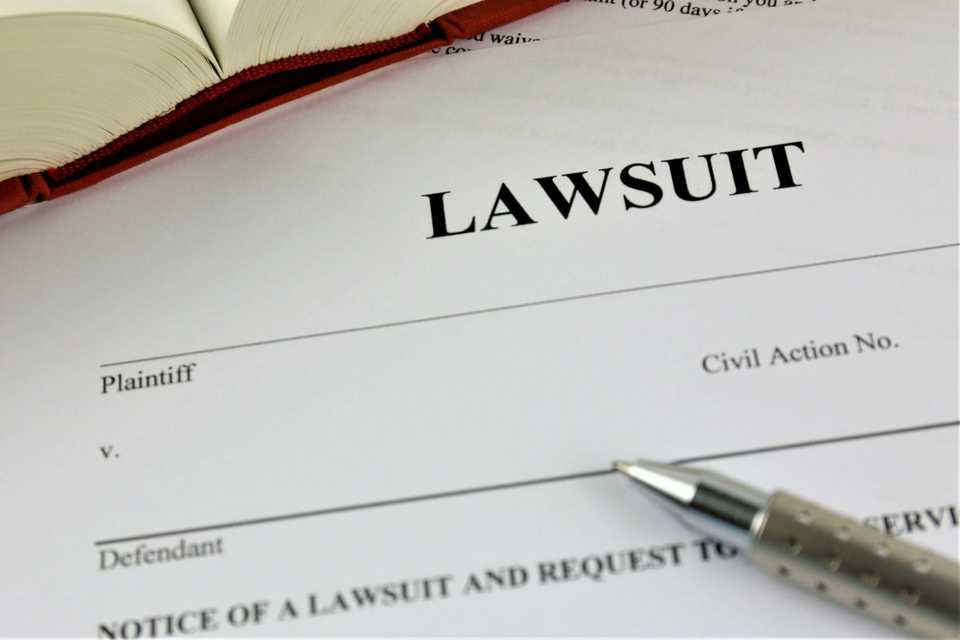Welcome to the intricate world of civil litigation in Ontario!
Whether you're taking your first steps into a courtroom or seeking to understand the legal landscape surrounding civil disputes, this guide is tailored to demystify the process and offer practical advice for those embarking on this challenging journey.

Here are JuriGo’s legal insights to maximize your chances of success in Ontario’s civil courts!
What are civil litigation claims exactly?
Civil litigation encompasses a broad spectrum of disputes, from contract disagreements and property issues to personal injury claims and beyond.
Civil litigation takes place between the parties involved and doesn’t typically include the government (unless the government is suing someone or getting sued). This sets civil litigation apart from criminal cases, where the government takes action against someone accused of breaking the law.
In essence, if a party loses a civil litigation case, it does not affect their criminal record, nor does it result in imprisonment.
| Important nuance! Understand that civil litigation and criminal prosecution are distinct legal processes. In scenarios where the same misconduct gives rise to both a criminal case and a civil lawsuit, these cases can either proceed concurrently or the civil case may be put on hold until the criminal case is resolved. |
|---|
For example, consider a situation where an individual is accused of fraud.
They may face criminal charges, where the state prosecutes them for their illegal actions. If found guilty, they could face penalties like jail time or fines. Concurrently, the individual could also be sued in a civil court by the victims seeking compensation for their losses. In this civil lawsuit, the focus is on recovering damages, not penalizing the defendant with prison time.
Other types of civil litigation claims can include contract breaches, claims based on someone’s negligence resulting in harm to another person (e.g., car accidents or medical malpractice), intentional acts that cause harm (e.g., defamation, assault, or invasion of privacy), and claims against manufacturers or sellers for producing or selling a defective product that causes an injury.

Civil litigation also encompasses property dispute claims, family law matters (such as divorces, adoption, or child custody), labour and employment claims, class action lawsuits (where a group of people collectively bring a claim to court), among many other types of disputes.
Understanding the structure of Ontario’s civil court system
In Ontario, the civil court system is structured to handle a variety of disputes, and understanding its framework is crucial for anyone involved in a civil litigation claim.
The Superior Court of Justice is the central pillar of civil litigation in Ontario, handling a wide range of civil proceedings. This includes commercial matters, personal injury cases, bankruptcy and insolvency issues, and litigation involving wills and estates. Its role also extends to reviewing some appeals under various laws.
For small disputes, the Small Claims Court, a distinct branch of the Superior Court, addresses civil matters where the claim is under $35,000. This makes it an accessible venue for more minor civil disputes, offering a more streamlined and less formal process than the main court.
Cases involving amounts between $35,000 and $100,000 are also handled by the Superior Court of Justice, but under a set of rules known as the Simplified Procedure.
This approach is tailored to make the process quicker and less complex than the usual procedures of the Superior Court, fitting perfectly for claims that are too large for Small Claims Court but not as hefty as the bigger cases the Superior Court typically sees.
Additionally, if a court decision or ruling is questioned, it can be appealed to the Court of Appeal for Ontario, and from there, potentially to the Supreme Court of Canada, the highest court in the country.
What should you expect at each stage of civil litigation in Ontario?
The civil litigation process in Ontario involves several key steps, with the most important ones outlined below:
First, the person filing the lawsuit (referred to as plaintiff) will identify the appropriate court to hear the case. After that, the plaintiff will file a document, called a Statement of Claim, outlining their claims and the type of compensation they’re seeking.

At this stage, the defendant (the party being sued) will respond to the claim with a Statement of Defence, outlining the reasons why they believe they should not have to compensate the plaintiff and providing their version of the facts.
They may also initiate a counterclaim, which is a claim that the defendant has against the plaintiff. In other words, it is a separate lawsuit brought by the defendant against the plaintiff within the same legal proceeding. Here, the plaintiff has a chance to reply with any new issues raised in the defence.
During the discovery phase, each party exchanges relevant information and documents related to the case. It includes examinations for discovery, where lawyers question the opposing party under oath. The purpose is to clarify the issues and understand the other party's position.
Throughout the litigation process, parties often engage in settlement discussions. Ontario courts encourage alternative dispute resolution methods like mediation to resolve disputes without a trial. Settlements can occur at any stage of the litigation process.

If the case does not settle, it proceeds to trial . In Canada, most civil litigation cases don’t involve a jury, so the decision will be entirely made by the judge. During the trial, each party presents their evidence, examines and cross-examines witnesses, and makes legal arguments. The judge then decides the outcome based on the evidence and legal principles.
After the trial, the judge renders a decision, which may include the award of damages or other remedies. Parties may file post-trial motions, such as a motion for a new trial or an appeal if they believe there has been a legal error.
Once a final judgment is rendered, the winning party may need to take steps to enforce the judgment, especially if the losing party does not voluntarily comply. This can involve garnishing wages or seizing assets.
Effective (and proven) legal strategies to win a civil claim!
In the realm of civil litigation in Ontario, the deployment of effective legal strategies can significantly influence the outcome of a case. Here are some tactics that can be used to strengthen a claim!
As always, JuriGo recommends discussing your litigation plans with a lawyer, as they will be able to properly advise you and navigate the process.
Negotiation tactics
One of the most critical aspects of civil litigation is the ability to negotiate effectively. This involves understanding the strengths and weaknesses of your case, as well as those of the opposing party. Skilled negotiators can often reach a settlement without the need for a trial, saving time and resources.
Key negotiation tactics include being well-prepared with facts and evidence, understanding the legal principles at play, and being willing to compromise to reach a mutually beneficial resolution.

Effective communication
Clear and persuasive communication is essential, both in written submissions and oral arguments. This includes the ability to articulate the facts of the case and legal arguments in a manner that is both comprehensible and compelling to a judge.
Effective communication also involves active listening, particularly during negotiations or when receiving feedback from the court.
Leveraging legal precedents
Understanding and effectively using legal precedents is a powerful tool in civil litigation. Precedents, or past judicial decisions, can provide a basis for arguing how your case should be resolved based on similar past cases.

This requires thorough research and an ability to draw parallels between your case and the precedents cited. CanLii is a legal database that contains most cases heard in Canada, and it is a great place to start if you’re planning on researching precedent.
Understanding Ontario’s legal system
A deep understanding of the legal system in Ontario, including procedural rules and court hierarchies, is crucial. This knowledge helps in strategizing the case, such as knowing when and how to file motions, understanding the rules of evidence, and being aware of any procedural nuances that could impact your case.
How much money can you be awarded if you win?
In Ontario, the financial outcomes of civil litigation claims can vary significantly, governed by various rules and judicial discretion. Understanding these nuances is vital for anyone considering or involved in civil litigation.
How compensation generally works for civil claims
The foundation of civil litigation in Ontario is compensating the injured party.
This means the responsible party must pay for the damages they have caused. Damages can range from simple property damages to more complex cases involving breaches of contract or personal injury.

The process of determining damages can be straightforward in cases like property damage or breach of contract, where costs can be directly calculated. However, it becomes more complex in cases involving general or non-pecuniary damages, such as "pain and suffering" in personal injury cases.
Caps on damages
Contrary to the large sums often seen in U.S. litigation, Canada, and specifically Ontario, has a cap on non-pecuniary damages. This was established by a series of Supreme Court cases in 1978 (Andrews v. Grand & Toy Alta. Ltd., and others), originally setting the cap at $100,000.
Due to inflation, this cap is now approximately $350,000 but is reserved for the most severe cases, like full-body paralysis in young individuals. General damages for pain and suffering are typically much lower.
The role of insurance in civil litigation
In the realm of civil litigation, insurance is often a key factor, as it may cover the costs associated with legal proceedings, such as attorney fees, court costs, and any settlements or judgments that may arise.

In many cases, it can prevent civil litigation from occurring in the first place, as insurance companies often negotiate settlements out of court, thus conserving public resources.
This not only eases the potential financial burden for those involved but also contributes to the efficiency of the legal system by minimizing unnecessary legal proceedings.
Punitive damages
In contrast to general damages, punitive damages are not for compensation but for punishing particularly reprehensible conduct. These are rare and only awarded in extreme cases of malicious or outrageous behaviour.
The aim is to punish the defendant and deter others from similar conduct. While there's no explicit statutory cap on punitive damages in Ontario, judicial practice tends to limit these awards.
Costs awards
In Ontario civil litigation, the general principle is that costs should be awarded to the successful party, to be paid by the unsuccessful party. However, the court only makes a costs award at the end of the proceeding. These costs include only allowable expenses and services that were relevant to the case, such as legal fees.
Factors influencing cost awards
The awarding of costs is subject to the judge's discretion and can vary significantly between cases. These awards are a critical aspect of litigation as they have financial and risk management implications for clients.
JuriGo recommends hiring an experienced civil litigation lawyer to guide you through this process, helping you understand the potential costs and risks involved in advancing a claim.
Ready to claim your victory in civil litigation in Ontario?
Achieving success in these disputes requires not just a strong case, but also a keen understanding of the legal landscape. As you stand on the brink of this legal challenge, know that the right guidance can make all the difference.
By filling out the form below, JuriGo will connect you with an experienced lawyer who will be ready to help you navigate through the complexities of your case.
Our service is free and with no strings attached, allowing you to find the perfect lawyer for a successful outcome!
